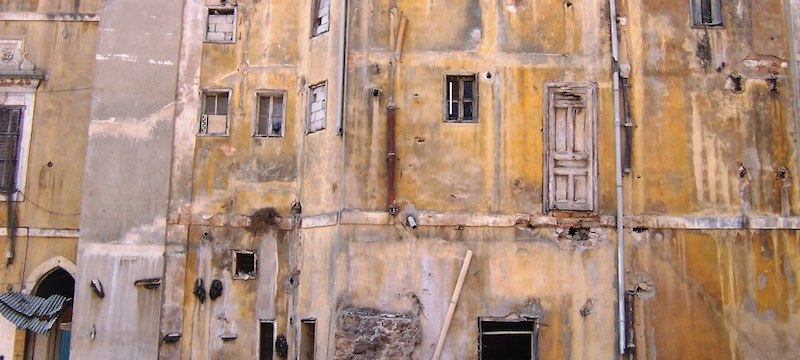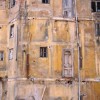
Keywords: haunting, vacancy, absence, ruination, return, trauma, void, emptiness, disembodiment, afterlife
Cultural theory has undergone something of a spectral turn over the last few decades, with thinkers as diverse as Jacques Derrida, Arjun Appadurai, Giorgio Agamben, and Gayatri Chakravorty Spivak writing on ghosts and haunting in relation to issues such as history, memory, intimacy, hospitality, dwelling, politics, and poverty. The spectral, moreover, increasingly pervades the contemporary cultural imagination, shaping creative and aesthetic practices in film, literature, photography, television, music, and more.
Against this backdrop, the Cities Seminar will explore to what extent – and in what ways – spectrality is a relevant and productive concept within contemporary urban studies. How can spectrality – and related concepts such as vacancy, absence, ruination, trauma, and disembodiment – help us to understand the culture and transformation of cities under conditions of globalization?
In light of these questions, the seminar explores the spectral in its varied urban manifestations: traces of past trauma, violence, or inequality which may become manifest in derelict spaces, colonial heritage, or collective urban memories; the glossy and transparent aesthetics of corporate architecture, infusing a sense of disembodiment into the built environment of contemporary cities; or the application of new technologies in urban life, planning and governance, transgressing the limits of embodied experience and blurring the distinctions between geographical presence and absence, urban reality and its ‘augmentation’.
The seminar seeks to analyse such examples of urban spectrality by exploring a diverse set of geographical contexts and case studies. From China’s vacant ghost cities to Beirut’s volatile spaces of buried trauma, and from the politics of (in)visibility in Iranian street life to the uncanny economics and corporate ruins of the global financial city, the seminar aims to bring concrete urban case studies into dialogue with cultural-theoretical work on spectrality.
Key reading: MarÃa del Pilar Blanco and Esther Peeren (eds), The Spectralities Reader: Ghosts and Haunting in Contemporary Cultural Theory (Bloomsbury, 2013).
Sept. 19: Dr. Esther Peeren (University of Amsterdam): “Ghosts in the City: The Spectral Turn and Urban Studies”, Â Location: Vondelzaal (University Library, Singel 425), Time: 3-6 pm
Oct. 17: Prof. Gillian Rose (Open University, UK): “Haunted by Future Visions: The Role of Digital Visualizations in Picturing Future Urban Spaces”, Location: Room 101A, University Theatre (Nieuwe Doelenstraat 16-18), Time: 3-6 pm
Nov. 21: Uzma Ansari and Alejandra Espinosa (University of Amsterdam): “Haunting and Emptiness: Spectrality in Istanbul and the Amazon Region”, Location: Room 101, University Theatre (Nieuwe Doelenstraat 16-18), Time: 3-6 pm
Dec. 12: Christian Ernsten (University of Cape Town): “Haunted Metropolis: The Stylizing of Cape Town as an Emerging Global City”, Location: Vondelzaal (University Library, Singel 425), Time: 3-6 pm
Feb. 20: <a href="http://www.uva.nl/over-de-uva/organisatie/medewerkers/content/n/a/j viagra naturel pour homme.a.naeff/j.a.naeff.html”>Judith Naeff (University of Amsterdam): “Absence in the Mirror: Beirut’s Urban Identity in the Aftermath of Civil War”, Location: Belle van Zuylenzaal (University Library, Singel 425), Time: 3-6 pm
March 20: Miriam Meissner (University of Amsterdam): “Specters of Finance and the Haunted City”, Location OMHP C1.23 (Oudemanhuispoort 4-6), Time: 3-6 pm
April 17: Dr. Kirsten Seale (University of Western Sydney) and Dr. Niall Martin (University of Amsterdam): “Reading Rodinsky’s Room: Two Responses to Iain Sinclair and Rachel Lichtenstein’s London Ghost Story”, Location: OMHP E1.07 (Oudemanhuispoort 4-6), Time: 3-6 pm
May 22: Dr. Alain Musset (Écoles des hautes études en sciences sociales, Paris): “City, Apocalypse and Science-Fiction: Toward an Aesthetic of Ruinsâ€, Location: OMHP E1.07 (Oudemanhuispoort 4-6), Time: 3-6 pm
